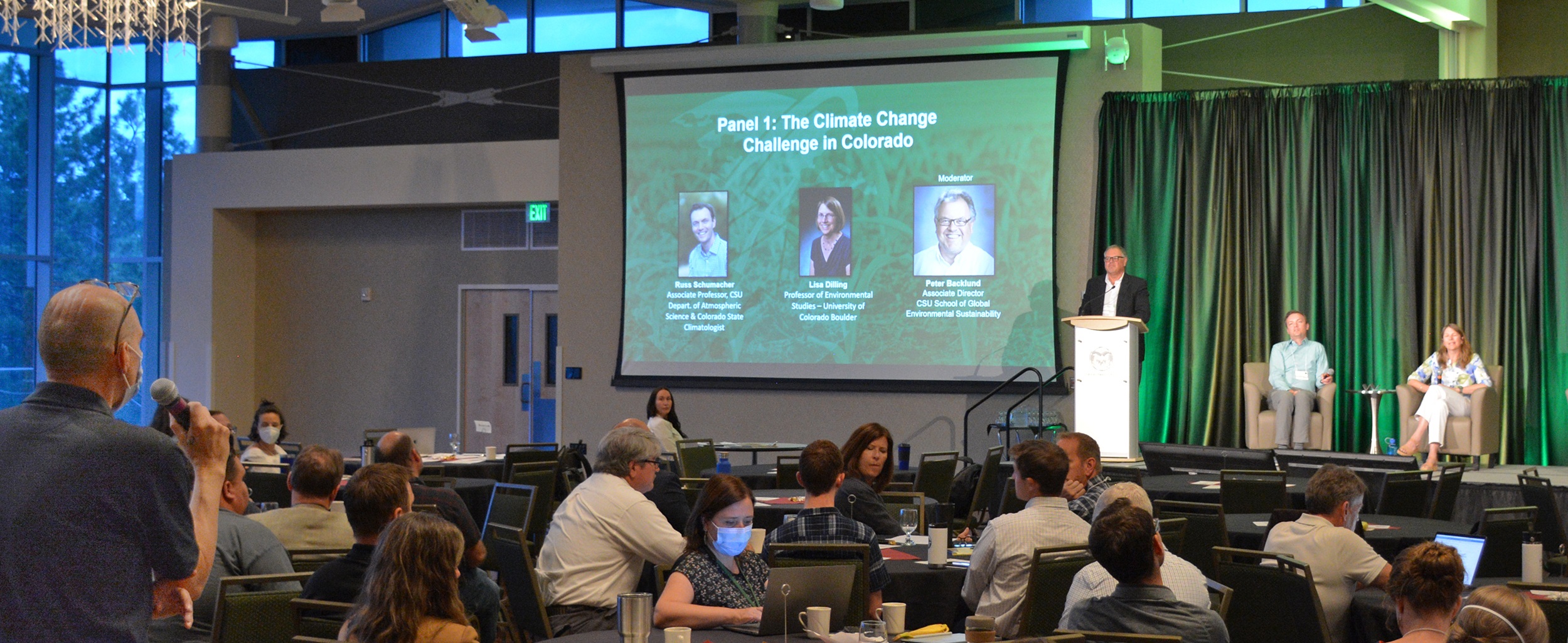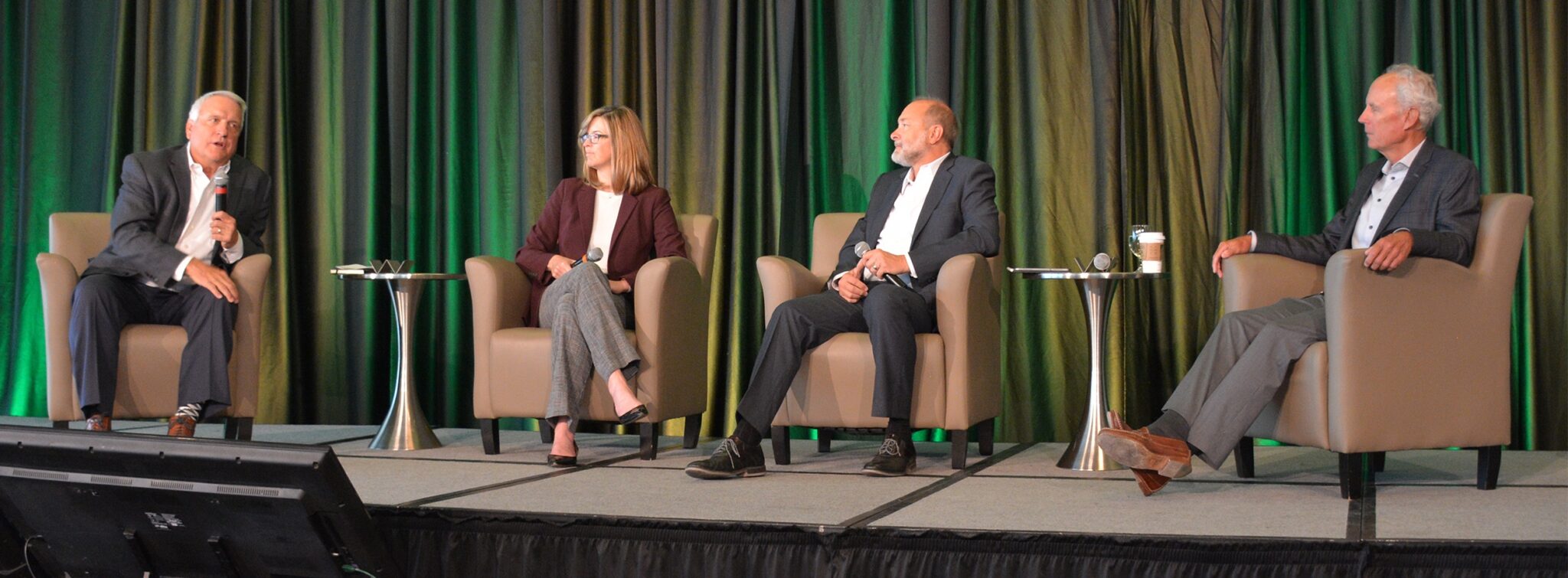
Second Annual Climate Transitions Dialogue
September 25-26, 2023
Hydro Building, Colorado State University Spur Center, Denver, CO
The Climate Transitions Dialogue was initiated by Colorado State University in 2022 to facilitate sustained discussion of the many significant climate change issues facing our region. The Dialogue aims to foster deeper communication and shared understanding among climate change researchers, government officials, business people, and concerned citizens. Our goal is to create a network of informed stakeholders and stimulate new collaborations that reduce the negative impacts of climate change on people, communities, and ecosystems in Colorado. The first dialogue, held at CSU in Fort Collins on June 6-7, 2022, attracted approximately 125 participants.
The upcoming Second Climate Transitions Dialogue will be held at CSU’s new Spur complex in Denver, on September 25-26, 2023. It will consist of a mix of presentations, expert panels, small group discussions, and networking sessions. Topics will include:
- Observed and projected climate change in CO and the mountain west
- Changing risks of extreme heat, wildfire, drought, and floods
- Vulnerability, impacts, and adaptive capacity of key sectors and systems
- Perspectives from urban and rural communities, businesses, and concerned citizens
- State and national climate change goals and policy frameworks
Agenda and Speaker announcements coming soon!
Seating is limited, register early.
Register Here

Background:
Climate change is a complex, multi-faceted challenge for Colorado and surrounding states. Increased amounts of greenhouse gases in the atmosphere, caused mainly by fossil fuel use, are leading to more intense rain and snowfall, more frequent and severe heat waves, and increased drought, flood, and wildfire risk. These changes pose serious problems for urban, rural, and wilderness areas and many critical economic sectors in our region, including energy, agriculture, tourism, and manufacturing. Addressing them requires two broad types of response:
- Reducing greenhouse gas emissions and removing greenhouse gases from the atmosphere to minimize the amount of climate change we experience
- Developing effective adaptation strategies that minimize the negative impacts from the climate change that does occur